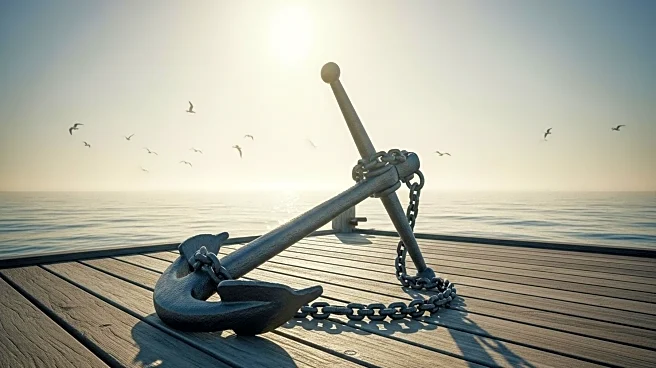What's Happening?
The Australian Maritime Safety Authority (AMSA) has raised concerns about the safety of container ships arriving at Australian ports with inadequately stowed and secured cargo. In its latest Maritime Safety Awareness Bulletin, AMSA highlights serious safety deficiencies found during inspections, including overloaded stacks, corroded securing gear, and improperly secured cargo. These issues pose significant risks to human safety and the environment, potentially leading to injuries, pollution, and costly clean-up operations. AMSA emphasizes the importance of maintaining securing equipment and ensuring crew training to prevent such incidents.
Why It's Important?
The safety of maritime operations is crucial for preventing environmental damage and ensuring the well-being of personnel involved in shipping activities. Poorly secured cargo can lead to accidents that result in significant financial losses and reputational damage for shipping companies. The AMSA's warnings highlight the need for stringent safety measures and compliance with international safety standards, which are essential for protecting marine ecosystems and reducing the risk of maritime accidents. This issue underscores the importance of effective cargo management and the role of regulatory bodies in enforcing safety protocols.
What's Next?
AMSA is urging vessel operators to enhance their safety management systems by identifying cargo risks and conducting regular inspections of securing equipment. The authority also stresses the need for proper crew training in using loading computer systems and lashing calculation programs. These measures aim to improve cargo security and prevent future incidents. Shipping companies may face increased scrutiny and potential penalties if they fail to comply with safety regulations, prompting them to invest in better training and equipment maintenance.
Beyond the Headlines
The broader implications of AMSA's findings may influence global shipping practices, as other countries could adopt similar safety measures to prevent cargo-related accidents. This could lead to a shift in industry standards, prioritizing safety and environmental protection. Additionally, the focus on crew training highlights the importance of human factors in maritime safety, potentially leading to advancements in training programs and technology to support safer shipping operations.








